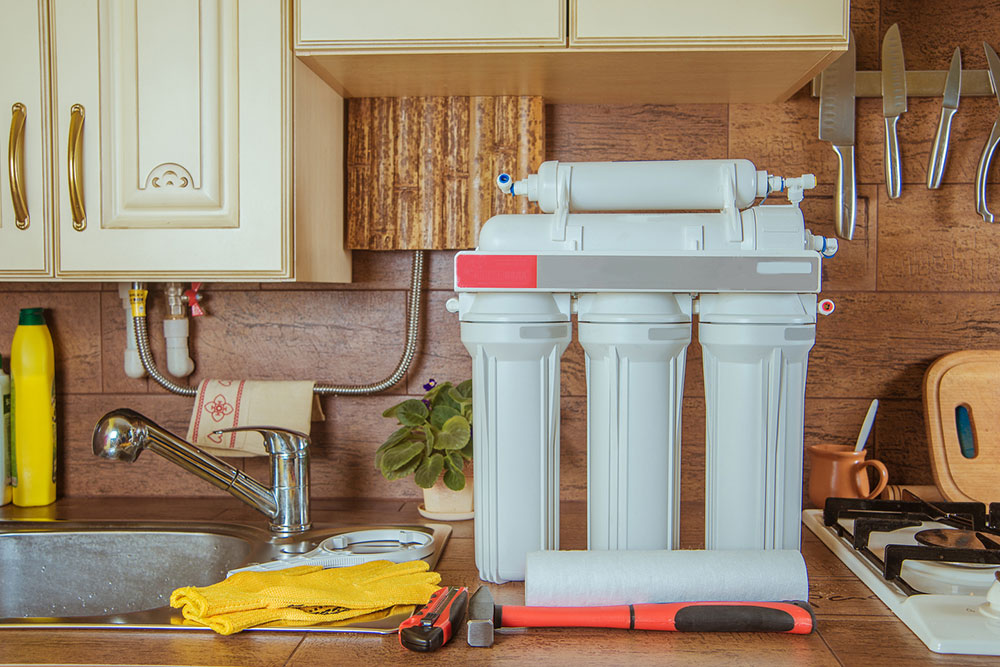8 mistakes to avoid when buying a water filter

While there is no life without water, contaminated water can risk life in many ways. Dirty water could carry diseases like diarrhea, cholera, dysentery, typhoid, and more. This is why one should rely on filtered water that is free from harmful bacteria, dirt, and unpleasant odors. A good filter can keep the water clean and make it drinkable. However, while choosing a water filter, one should avoid the following mistakes to find the best option:
1. Getting the size wrong
To choose a filter of the right size, one must consider things like the size of the household, i.e. number of members in the family to meet everyone’s water needs. The filtered water requirements may be as low as 15 GPM (gallons per minute) or as high as 40 GPM, depending on the family size and usage habits. Further, one should also determine where the filter might be placed and if it will fit there easily. Measuring the available space can help one choose the right filter.
2. Being too loyal to a brand
It’s a good thing to be loyal to a brand one has tried and tested, but being too rigid about the brand can limit one’s options. With advances in technology, newer water purifiers come with many dynamic features, so it is always a good idea to explore all options and review models offered by different brands. One should then make a purchase decision based on factors like budget and features of the available models.
3. Not testing the water
The choice of water filter or purifier usually depends a lot on the quality of the water one gets. Here, the TDS (total dissolved solids) level of water can tell a lot about how clean it is, so checking the TDS level of tap water is a crucial step before buying a water filter. There are three major types of water purifying systems—reverse osmosis, ultrafiltration, and ultraviolet. If the TDS level of tap water is high, one may need to choose a reverse osmosis (RO) purifier, but if it is low, ultrafiltration and ultraviolet would work. As RO is more expensive than the other two types, it is best to go for UF or UV if the TDS is not too high.
4. Overlooking upkeep costs
The total cost of a water filter is not limited to its retail price. The purifier’s maintenance and repair is a continuous expenditure even after it is installed. For this reason, one needs to consider total upkeep costs along with the market rate and installation charges. Further, one can opt for a filter that is cheaper to maintain.
5. Not setting a budget
Buying a water filter is a big decision, so budget planning is an essential part of the process. One should set a clear budget range based on the average price of water filters and purifiers offered by different brands and the amount one is willing to spend on the appliance. Then, one can choose a filter that offers the most value for money and falls in the budget range.
6. Falling for tall claims
Of course, it is the salesperson’s job to convince one to buy a specific water filter. However, it is for the customer to distinguish between facts and inaccurate claims and choose the best filter. One thing to bear in mind is that proactively asking questions and tasting the filtered water before buying the filter can help understand whether the seller is genuine in its claims. One should do their own research about the brand and specific product and explore its features, benefits, and user reviews to see if it is a worthwhile product.
7. Not checking reviews
Online reviews say a lot about the seller, the product, and its pros and cons, so it is a great way to find out the kind of experiences other users have had with the water filter. One should also seek recommendations from family members, friends, neighbors, colleagues, and other acquaintances and ask them about their experiences with specific water purifier brands and their products.
8. Not considering customer support
As a water filter requires regular maintenance, the seller of the product should have an organized after-sales service in place, which helps customers with queries or complaints regarding the filter after purchase. Even if customers do not contact the company with any complaints, a good company should voluntarily send a technician to check the system for any possible issues once every few months. So, before buying a water filter, one should check with the company if it has an after-sales team in place and the kind of services they provide. Additionally, one should check company reviews online, either on e-commerce platforms that are selling these filters or websites of independent reviewers, to gain some insight into the company’s customer service.
One can also ask other customers about the quality of customer support and the methods the company uses to stay connected with their customers. Ideally, companies should have a chatbot, operator assistance, and email facilities to make it easy for customers to reach out in case they experience issues with their water filters.


